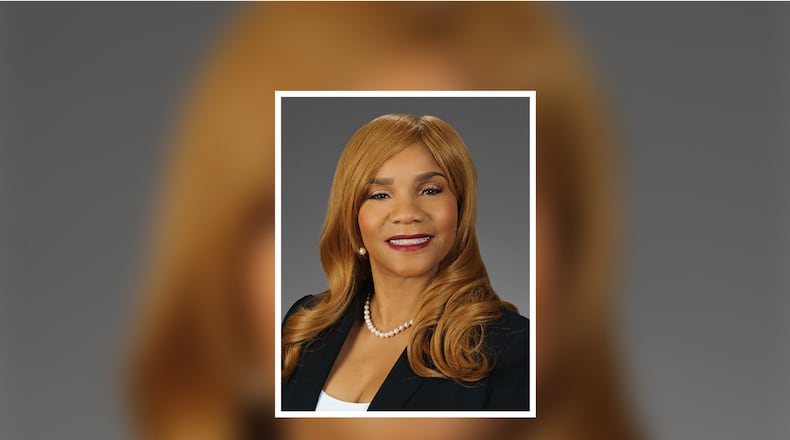Two rivals of the Democratic Party nominee for a Public Service Commission seat are challenging her eligibility because the winner of the May primary doesn’t live in the district.
Shelia Edwards, who garnered the most votes in the Democratic primary in May for the District 3 seat, lives in Cobb County — not in District 3, which includes DeKalb, Clayton and Fulton counties.
Edwards’ place of residence isn’t in dispute. What is contested is the residency requirement, which calls for candidates to live in their district for 12 months prior to the election. At issue is the wording of the residency requirement in Georgia statute, how it is interpreted and when it applies.
Chuck Eaton, a Republican elected in 2018 to a six-year term on the Public Service Commission (PSC), vacated the seat last year when Gov. Brian Kemp appointed him as a Fulton County Superior Court judge. Kemp then appointed Fitz Johnson, also a Republican, to replace Eaton in the PSC District 3 seat until the next general election.
Johnson did not live in PSC District 3 before he was appointed, but Georgia statute exempted him from the residency requirement because he was filling a vacancy. He is now the Republican incumbent for the District 3 seat.
Edwards’ attorney argues she also should be exempted from the residency requirement because she’s running to fill the remainder of Eaton’s unexpired term.
An administrative law judge in May deemed Edwards’ candidacy valid, based on the idea that she is running to fill a vacancy, and as such the residency requirement does not apply.
But after Edwards won the primary, her two Democratic rivals filed legal challenges. The first case was heard in a Cobb County courtroom on Tuesday.
The PSC is a somewhat obscure state regulatory body, but its five members play a key role in deciding how much of the electricity used in Georgia is generated and how much customers pay for it. The most high-profile company commissioners regulate is Georgia Power, the state’s largest electric utility which serves some 2.7 million Georgians. Public service commissioners are elected in statewide votes, but must live in the district they are running in.
Edwards won the May Democratic primary and avoided a runoff for the District 3 seat. She more than doubled the vote total of second place finisher and energy activist Chandra Farley. Small business owner Missy Moore finished a distant third.
Both Farley and Moore based their legal challenges on Edwards’ residency.
Attorney Bryan Sells, who represents Farley, argued that the residency requirement applies to this election because “there is no vacancy” being filled in the election for the seat currently held by Johnson. Instead, Sells contended, it’s “an election for a new term,” and “there is no vacancy unless someone resigns or dies in office or is otherwise disqualified.”
Sells said Edwards’ argument is that the wording of the statute “creates a loophole for her,” but he said “that’s not what the legislature intended.”
Edwards’ attorney, Ann Brumbaugh, filed a motion to dismiss Farley’s suit. She argued in court that it’s “not a loophole — it’s the plain language of the statute” saying the residency requirement does not apply to the unexpired term through 2024.
Edwards called the legal challenge an attempt “to disenfranchise the nearly 400,000 people that voted for me.” She said if she is elected, she has “every intention of... moving to Atlanta or DeKalb.”
A ruling from Senior Judge David Emerson is expected in coming days. That could be followed by an appeal.
The District 3 seat is not the only PSC race in which Democrats have a challenge with their nominee.
Patty Durand, the Democratic candidate in the race for the District 2 PSC seat, is also facing potential disqualification on the grounds that she has not lived in her district long enough to be eligible to run. Durand previously lived in Gwinnett County, which was part of District 2.
But after new district maps were drawn and approved earlier this year, Gwinnett County was removed from the district. Soon after, Durand moved to Rockdale County within the new District 2 boundaries, but she will have only lived there for eight months by the time the Nov. 8 general election arrives. A hearing in Durand’s case is set for July 26 in Fulton County Superior Court.
Keep Reading
The Latest
Featured




